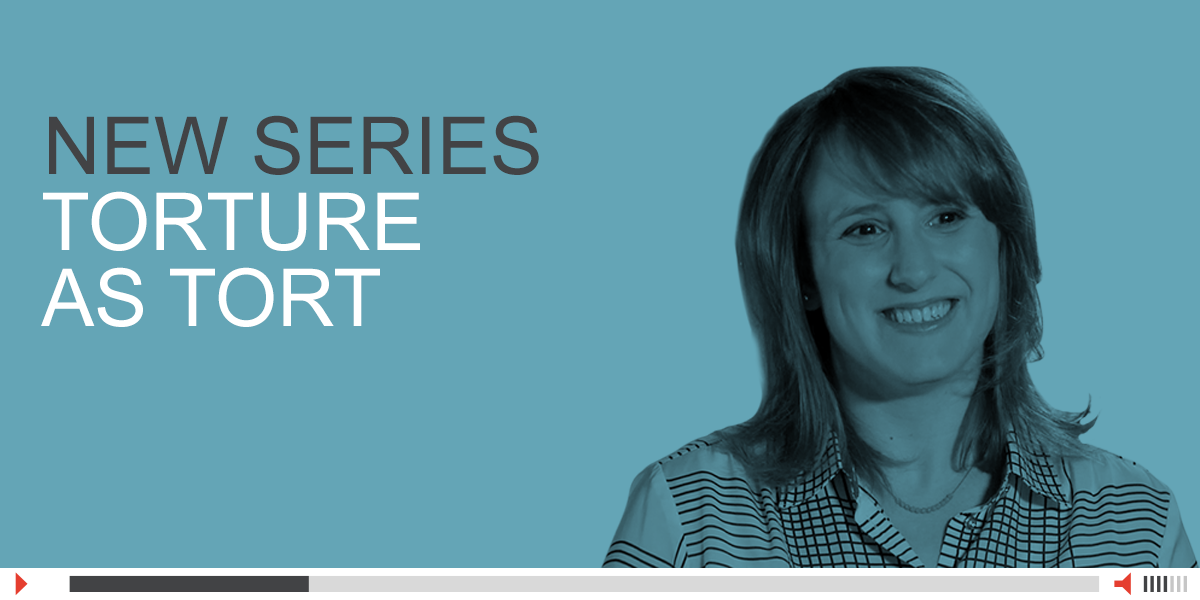By Heather Cohen
In Kazemi Estate v Islamic Republic of Iran, 2014 SCC 62, the Supreme Court of Canada held that Canada’s State Immunity Act, RSC 1985, c S-18 (SIA) acts as a complete bar to prevent Canadian courts from providing redress through civil claims for torture committed abroad.
In 2003, photojournalist Zahra (Ziba) Kazemi, a Canadian citizen born in Iran was taking pictures of protesters near a prison in Tehran when she was arrested, held in that very same prison, and tortured to death. In 2006, Kazemi’s son, Stephan Hashemi, on his own behalf and on behalf of his mother’s estate, filed a civil lawsuit in Montreal against Iran and three individual Iranian officials: Ayatollah Ali Khomeini, Iran’s Supreme Leader; Saeed Mortazavi, Tehran’s Chief Public Prosecutor alleged to have ordered Kazemi’s arrest; and Mohammad Bakhshi, the former Deputy Chief of Intelligence for Evin Prison, the site of Kazemi’s abuse.
Relying on the SIA as a complete bar to the plaintiffs’ action, the defendants brought a motion to strike. The decision of the Quebec Superior Court was released in 2011. Justice Robert Mongeon would have allowed Hashemi’s individual claims to go forward given that he had suffered injuries in Canada (an exception under the SIA), but dismissed the claims in the name of Kazemi’s estate, as the related abuses were suffered only outside of Canada.
On appeal to the Quebec Court of Appeal, that Court held that the SIA operated as complete bar to prevent any of the claims from going forward. The case was then appealed to the Supreme Court of Canada, at which point CLAIHR was granted leave to intervene. CLAIHR picked up the reasoning of Justice Mongeon at the Quebec Superior Court and argued that serious psychological trauma, when suffered in Canada, constitutes an exception to state immunity under s. 6(a) of the SIA. The Supreme Court of Canada ultimately rejected this argument and upheld the decision of the Quebec Court of Appeal.
Unlike the United States, Canada has no alien tort statute. The plaintiffs and certain interveners in Kazemi relied, in part, on international law, and particularly the prohibition of torture as a jus cogens norm to ground their cause of action. The Honourable Justice LeBel, for the majority, agreed that the prohibition of torture is jus cogens, but that there was no requirement under international law that Canada open its courts to permit its citizens to seek redress through civil claims for torture committed abroad.
Justice LeBel did suggest that Parliament could choose to offer the plaintiffs redress, noting:
Parliament has the ability to change the current state of the law on exceptions to state immunity, just as it did in the case of terrorism, and allow those in situations like Mr. Hashemi and his mother’s estate to seek redress in Canadian courts. Parliament has simply chosen not to do it yet. [Emphasis added.]
The “yet” at the end of the Supreme Court of Canada decision suggests that the Court itself would like to see Parliament make this change. Efforts are underway to lobby the federal government to adopt legislation that would enable Canadians to seek redress for torture suffered abroad. While such a law would not go as far as the alien tort statute, it would help Canadians hold states which commit human rights abuses accountable for their actions. In the meantime, supporters of international human rights will have to satisfy themselves with the Honourable Justice Abella’s dissent in the Kazemi decision:
In the face of universal acceptance of the prohibition against torture, concerns about any interference with sovereignty which may be created by acting in judgment of an individual state official who violates this prohibition necessarily shrink. The very nature of the prohibition as a peremptory norm means that all states agree that torture cannot be condoned. Torture cannot, therefore, be an official state act for the purposes of immunity ratione materiae.



